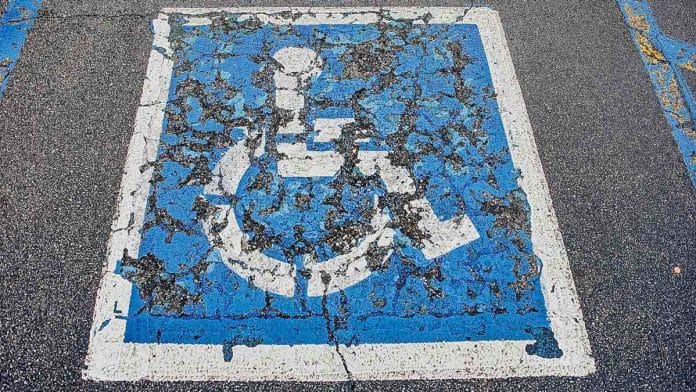What does it mean to be truly included in a city that prides itself on progress? There are 2,34,882 people with disabilities in Delhi, per the 2011 Census, making up 1.4 per cent of the capital’s population. For them, the recent assembly election results signify more than just a political shift. They represent a moment of reckoning. After decades of neglect, will this new government finally prioritise their rights, or will the community continue to be treated as an afterthought?
After 27 years, the Bharatiya Janata Party (BJP) has reclaimed power in the National Capital Territory of Delhi. The city now awaits the announcement of its new Chief Minister, with speculation running high. With a “double-engine” government in place, Delhiites anticipate accelerated development. But for persons with disabilities, the real question is not about faster roads or grand infrastructure projects—it is about whether their most fundamental rights to accessibility, inclusion, and dignity will be upheld.
Making good on manifestos
Ahead of the Delhi election, the BJP’s manifesto included several pledges for persons with disabilities.
The pension amount for those with over 40 per cent disability is set to increase from Rs 2,500 to Rs 3,000—an improvement, but still far from enough to ensure financial stability. The party also promises to work with the central government for 100 per cent registration under the Deendayal Divyang Rehabilitation Scheme, promising dedicated support centres in every district. These centres would streamline access to essential services such as disability certificates, DTC passes, and identity cards.
With the intent to empower individuals with disabilities economically, the BJP has proposed collateral-free loans of up to Rs 25 lakh at minimal interest rates to facilitate employment and self-employment opportunities.
Ahead of the 2024 Lok Sabha elections, the National Disability Network, under the aegis of the National Centre for Promotion of Employment for Disabled People (NCPEDP), launched a first-of-its-kind ‘Manifesto – For and By Citizens with Disabilities’ in February 2024. It highlighted the expectations and demands of persons with disabilities across India.
Among these demands, accessibility remains a pressing concern. Under the Sugamya Bharat Mission, the BJP has promised improvements in public transport, including the metro and buses.
However, promises alone are meaningless without action. The reality is stark: nine years after the Accessible India Mission was launched in 2015, accessibility remains dismal.
As of December 2024, out of 1,45,747 buses in the country, only 6 per cent are fully accessible, while 29 per cent are partially accessible. This failure to ensure basic mobility rights is unacceptable. All public and private transport facilities, buildings, services, and communication systems must be made fully accessible—anything less is a violation of the fundamental right to live independently and participate in society.
Access to healthcare remains a major concern as well. A dedicated health insurance scheme tailored to persons with disabilities is long overdue. Ayushman Bharat, the flagship national insurance programme, is yet to be implemented in Delhi, leaving individuals with disabilities to bear the heavy financial burden of medical care. With the added costs of assistive devices, therapy, and specialised treatment, an exclusive and inclusive health insurance scheme must be introduced immediately to bridge this gap and provide much-needed financial security.
Budgetary allocations must reflect a sincere commitment to disability inclusion. At least 5 per cent of the state budget should be dedicated to poverty alleviation and developmental programmes for persons with disabilities. Here, there should be particular focus on women with benchmark disabilities—40 per cent or more of a disability—in line with the mandates of the Rights of Persons with Disabilities (RPwD) Act, 2016.
However, in the financial year 2024-25, the Department of Social Welfare, NCT of Delhi, allocated only about 0.56 per cent of the total budget for the welfare of persons with disabilities—a starkly inadequate figure. This limited funding hampers the effective implementation of key policies and schemes, leaving many critical needs unaddressed.
Also Read: My wheelchair visit to Humayun Tomb stopped at Isa Khan. Sympathy can’t replace rights
From acknowledgement to action
As the BJP-led government takes office, it must move beyond acknowledging the concerns of persons with disabilities and take decisive action. The time for vague promises and delayed implementation is over. The new leadership must demonstrate its commitment to inclusion by enforcing policies, allocating funds, and dismantling systemic barriers.
For Delhi’s disabled community, the pursuit of equity continues—this time with renewed optimism under the new government. However, achieving inclusive development requires a collaborative approach, where civil society actively partners with the government to co-create and implement these measures. Only through collective effort can a truly accessible and equitable Delhi be realised.
Will this government rise to the challenge and build an inclusive Delhi where persons with disabilities can truly thrive? Or will these commitments, once again, be reduced to mere electoral rhetoric? The coming months will reveal whether the BJP’s promises translate into real, measurable change.
Arman Ali is the Executive Director of National Centre for Promotion of Employment for Disabled People (NCPEDP). Views are personal.
(Edited by Asavari Singh)






